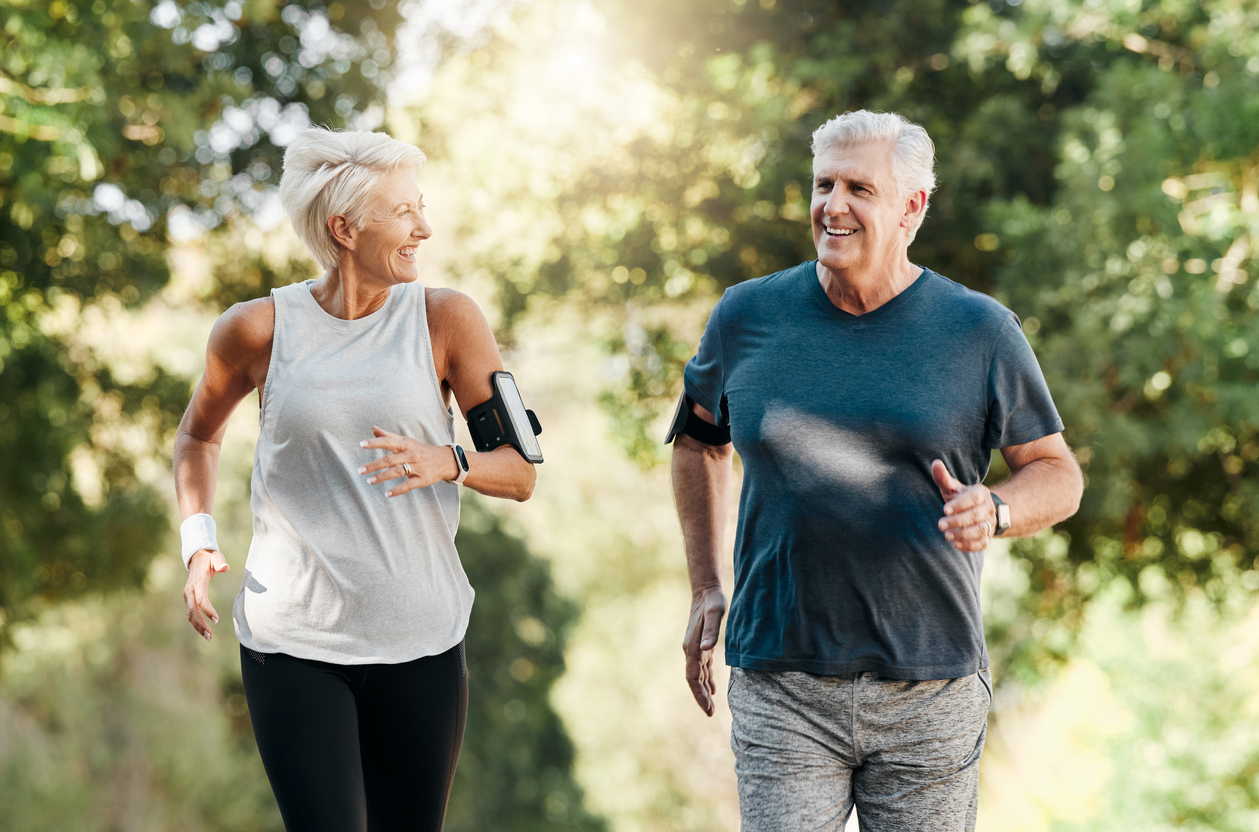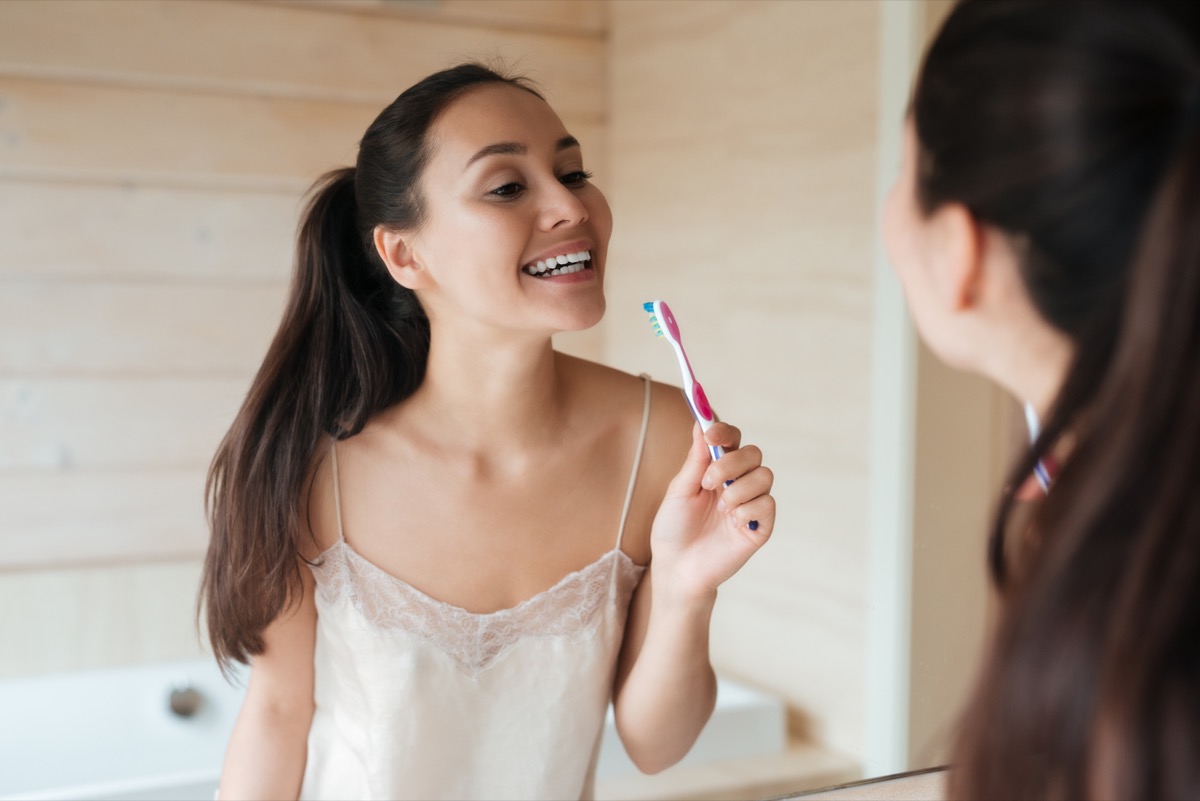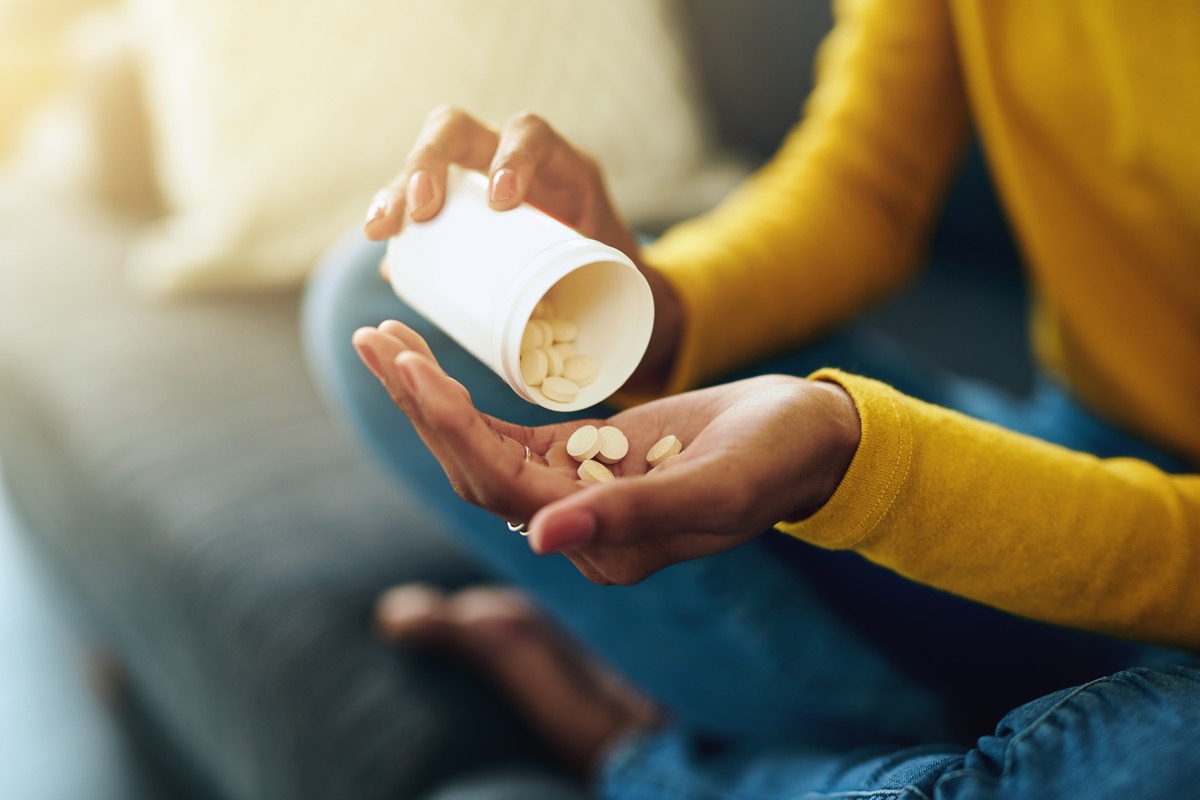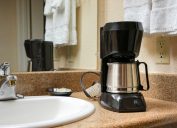5 Things You Should Do Before Taking Your First Sip of Coffee in the Morning
Here's how to make the most of your morning cup of joe.
If you're like many Americans, chances are you roll out of bed and straight into your kitchen for a hot cup of coffee every day. Yet experts say there may be certain health benefits to putting off your morning jolt until you've done a few other things first. By delaying that first sip in favor of other habits, you can optimize your coffee's benefits. Read on to learn which five things you should do before having your first cup of coffee in the morning.
READ THIS NEXT: High Blood Pressure? Drinking 2 Cups of Coffee Daily Doubles Heart Disease Death Risk, New Study Finds.
1
Have a nutritious breakfast

Everyone's body is different, and many people can drink coffee on an empty stomach without suffering any consequences. However, as The New York Times points out, some people who drink their coffee first thing in the morning experience higher levels of acidity in their stomach and esophagus, which can lead to reflux.
Nancy Mitchell, RN, a contributing writer at Assisted Living, says it's especially important to eat breakfast before having coffee if you suffer from gut inflammation. "Inflammatory conditions like gastritis make the gut lining sensitive to acidic foods," she tells Best Life, adding that this can cause bloating and abdominal discomfort.
James Walker, MD, a clinical physical and medical consultant for Welzo, agrees. "Consuming a balanced breakfast before coffee provides essential nutrients and energy, stabilizes blood sugar levels, supports cognitive function, and helps avoid potential digestive discomfort that some individuals may experience on an empty stomach," he says.
READ THIS NEXT: Doing This When You Walk Slashes Your Risk of Heart Attack, Cancer, and Dementia, New Study Says.
2
Drink water

Thanks to our morning coffee, we often forget to hydrate in other ways. And while coffee and other caffeinated beverages do count toward your total fluid intake, water is the best way to keep your hydration levels high.
"Starting your day with water helps rehydrate your body after sleep, kickstarts your metabolism, aids in digestion, and prevents dehydration caused by coffee's diuretic effect," says Walker. Mayo Clinic experts say that men should aim for 15.5 cups of water daily, while women need 11.5 cups of water daily for optimal hydration.
3
Move your body

Caffeine has long been linked with enhanced athletic performance, but experts say that working out before your daily cup of coffee may also come with certain benefits. "Exercising before coffee can boost circulation, increase energy levels, enhance mood, and potentially enhance fat-burning effects by utilizing the body's own energy stores more efficiently," says Walker.
Cesar Sauza, RDN, a registered dietitian nutritionist at the website Health Canal, adds that exercising before drinking coffee may eliminate the need to drink coffee altogether. "Morning physical activity boosts energy levels and focus for the rest of the day, so swapping out a cup of coffee for physical activity can help reduce your caffeine intake," he tells Best Life.
4
Brush your teeth

There's a longstanding debate over whether it's better to brush your teeth before or after drinking coffee, but many experts say it's best to brush first, then wait at least 30 minutes before your your first brew.
"It's recommended to brush your teeth before drinking coffee to remove plaque and bacteria, reducing the risk of coffee-related dental staining," explains Walker. "Waiting a short time after brushing allows the protective effects of toothpaste to take effect," he adds.
For more health news sent directly to your inbox, sign up for our daily newsletter.
5
Consider your medications and underlying conditions

If you take any medications in the morning, you should discuss with your doctor whether they may interact with coffee or caffeine. Linda Khoshaba, NMD, FABNE, a board certified physician in Naturopathic Endocrinology and the founder of Natural Endocrinology Specialists (NES), says this is especially important for medications used to treat thyroid conditions or diabetes. "For example, levothyroxine, a common medication for hypothyroidism, should be taken on an empty stomach and then followed by a 30-minute to one hour wait before eating or drinking anything other than water," she notes.
Similarly, it's important to ask your doctor about how caffeine may affect other aspects of your healthcare routine. For instance, "if you have diabetes or another condition that affects blood sugar, it's important to check your levels in the morning. Caffeine can have an impact on blood sugar levels, and monitoring can help manage any potential effects," Khoshaba explains.
Best Life offers the most up-to-date information from top experts, new research, and health agencies, but our content is not meant to be a substitute for professional guidance. When it comes to the medication you're taking or any other health questions you have, always consult your healthcare provider directly.






















